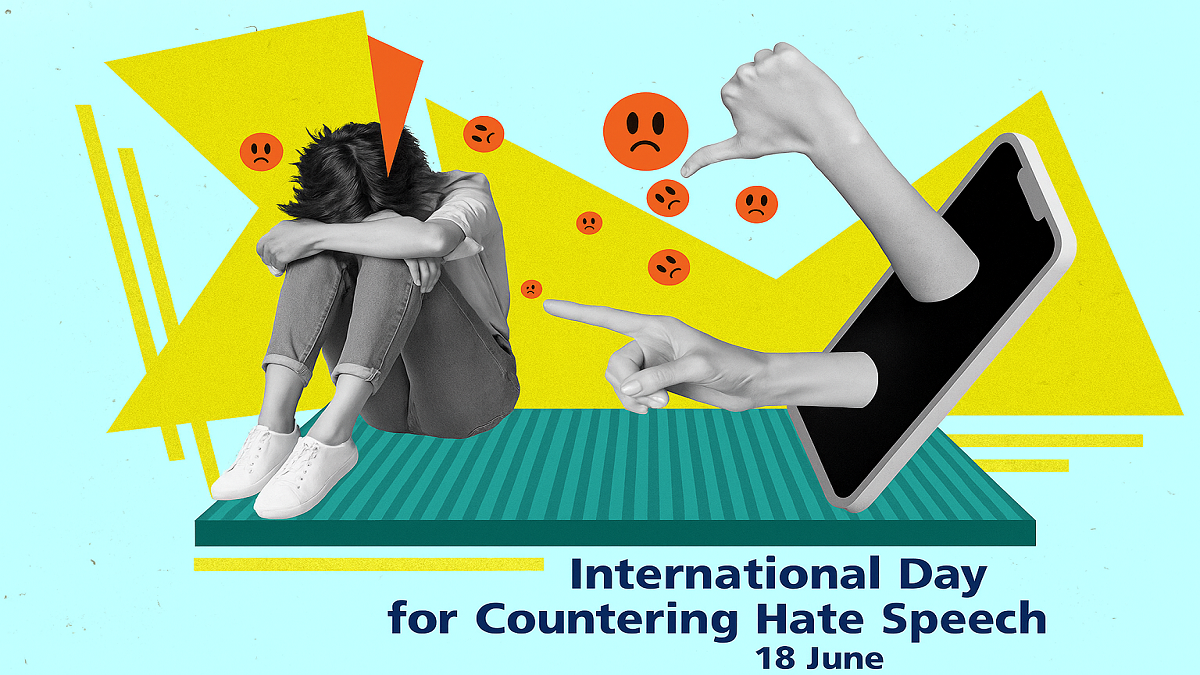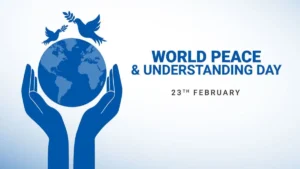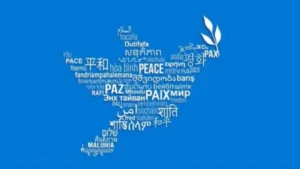As the world marks International Day for Countering Hate Speech on 18 June, global leaders and institutions are renewing their commitment to tackle the rapid proliferation of online hate speech. One of the strongest voices this year comes from Nazia Rehman, Chair of the Congress Social Inclusion Committee (United Kingdom, SOC/G/PD), who urged local and regional authorities to implement practical measures to combat this rising threat.
The Threat of Hate Speech Online
In today’s hyper-connected digital environment, hate speech has found a fertile ground to grow—spreading discriminatory ideologies and targeting marginalized communities. Victims of online hate include women, LGBTI individuals, and ethnic or religious minorities. However, as Rehman notes, “any individual can be the victim of hate speech online“.
The intimidation, exclusion, and self-censorship that often result from hate speech do not just affect individuals but erode the social fabric and democratic values of communities. Moreover, as communication technologies advance, particularly AI-driven platforms, the scope and reach of hateful content expand exponentially.
The Role of Local and Regional Authorities
According to Rehman, addressing hate speech must begin at the local and regional levels. She references the Congress report “Hate speech and fake news”, which outlines a roadmap for authorities to take meaningful action. Some of the recommended measures include:
- Educational programmes to shield young people from being manipulated into political radicalisation and violent extremism.
- Ensuring AI and digital tools used by governments are built to prevent hate, not facilitate it.
- Protecting elected officials from online abuse and offering them institutional support in the aftermath of such attacks.
Hate Speech and Artificial Intelligence
The impact of hatred is not new, but its scale and speed have escalated with the rise of digital technologies. The United Nations has acknowledged hate speech as a major threat to peace, human rights, and inclusive development. The UN Strategy and Plan of Action on Hate Speech, launched in 2019, frames hate speech as any form of communication that attacks, demeans, or discriminates based on identity markers like religion, ethnicity, or gender.
While AI has the potential to detect and prevent harmful content through early-warning systems, it can also be exploited to amplify hate if not governed by ethical standards and human rights principles. Therefore, AI governance is now a priority area, addressed through international frameworks like the Global Digital Compact.
The UN’s Global Approach: Strategies and Frameworks
In response to the growing threat, the UN General Assembly in July 2021 adopted a resolution titled “Promoting inter-religious and intercultural dialogue and tolerance in countering hate speech.” The resolution emphasized the need for a multistakeholder approach, involving:
- Member States
- Tech and social media companies
- Civil society organizations
- Educators and religious leaders
- Youth and individual citizens
It also officially designated 18 June as the International Day for Countering Hate Speech, a day to galvanize global action and spotlight the efforts needed to mitigate and eliminate this modern-day scourge.
#NoToHate: Encouraging Action at All Levels
Through campaigns such as #NoToHate, the UN encourages people to confront hate speech even in everyday settings—be it workplaces, social media, or public discourse. While it may be daunting to speak out, silence enables hate to normalize and spread. The campaign underscores the moral responsibility each person bears in standing up to hateful rhetoric and fostering a culture of respect and inclusion.
Why Tackling Hate Speech Matters
Unchecked hate speech can act as an early warning signal for violence, including atrocity crimes. It undermines human rights, democratic processes, and social cohesion. By addressing it head-on, the international community hopes to:
- Prevent conflict and radicalisation
- Promote gender and racial equality
- Protect youth and marginalized communities
- Foster peaceful and inclusive societies
A Shared Responsibility for a Shared Future
The fight against hate speech is not just a governmental or institutional duty—it is a collective moral obligation. Whether as policymakers, educators, content moderators, or everyday individuals, each of us holds the power to push back against hate, uplift empathy, and preserve human dignity in a digital age fraught with division.
As the global community marks another International Day for Countering Hate Speech, the message is clear: the time for action is now. Hate speech may be amplified by technology, but so too can our efforts to combat it, educate others, and build a more just world.



 Central Excise Day 2026: Why 24 February...
Central Excise Day 2026: Why 24 February...
 World Peace and Understanding Day 2026: ...
World Peace and Understanding Day 2026: ...
 International Mother Language Day 2026: ...
International Mother Language Day 2026: ...








